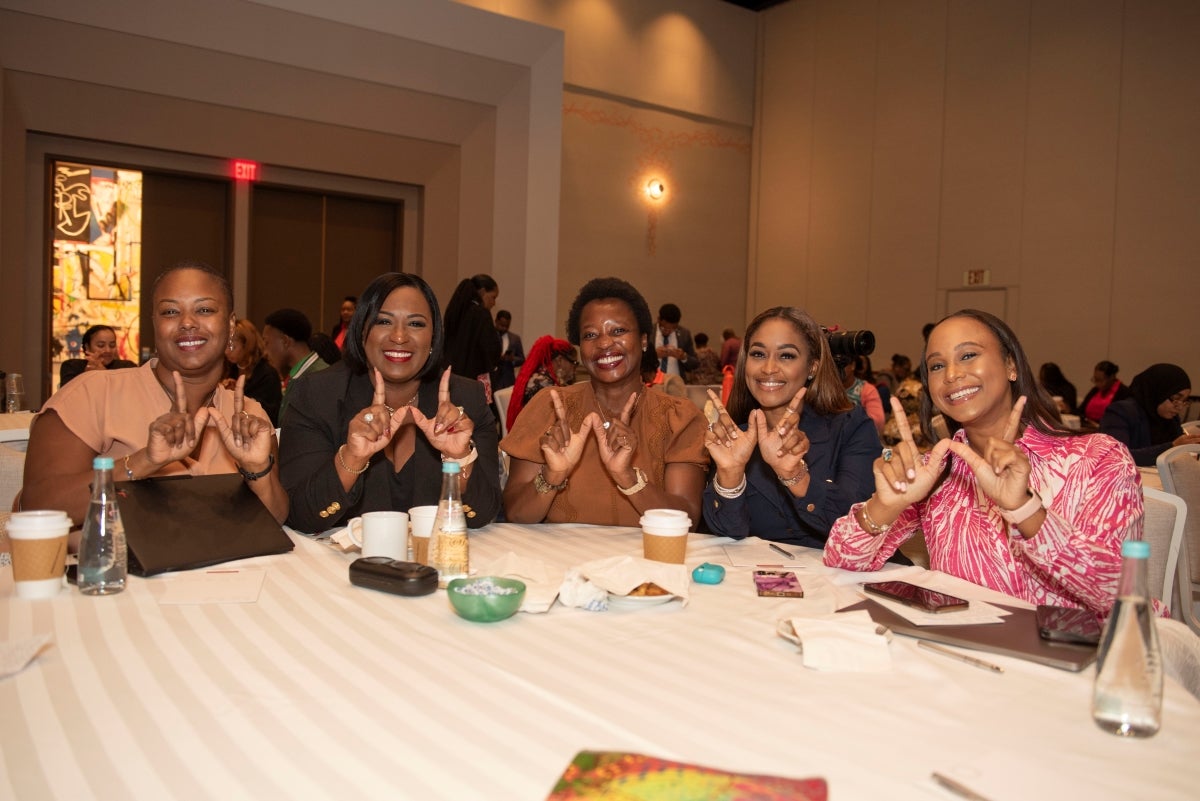Unlocking Opportunities: Joint SDG Fund Empowers Bahamian MSMEs
Date:
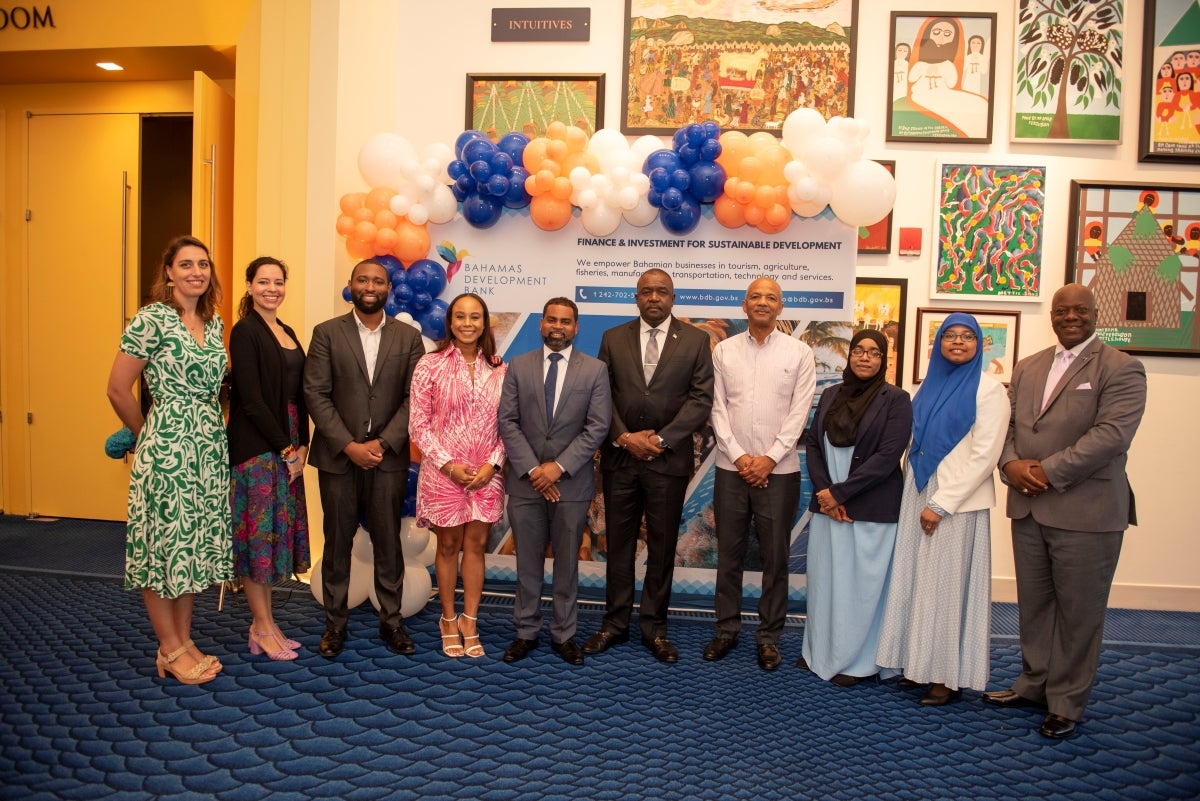
UN Photos / Unseen Media
Nassau, Bahamas (November 22, 2024): Unlocking financing for women, youth, and people living with disabilities (PLWD) MSME owners, was one of the core outcomes of the now concluded Joint SDG Fund Programme “Building Back Equal through Innovative Financing for Gender Equality and Women’s Empowerment” Project in The Bahamas.
With a substantial investment of nearly USD one million, this pioneering initiative was the first of its kind in The Bahamas and Bermuda. It aimed to address the unique challenges faced by medium, small and micro enterprises (MSMEs) in the creative and cultural, agribusiness, and tourism industries sectors and foster sustainable economic growth.

Key Achievements:
- Financial Empowerment: The Bahamas Development Bank SDGs Concessional Loan Fund has made available USD 2.5 million in medium-sized loans at no-to-low interest rates. This proved to be a critical injection specifically for those businesses on their growth journey and just a few steps away from upscaling their business. It is also the first of its kind financial facility in The Bahamas, introducing blended finance focused towards gender equality in the region. Additionally, innovative start-ups received grants of almost USD 100,000.
- Capacity Building: Nearly 300 entrepreneurs benefited from business accelerator programmes implemented by the Small Business Development Centre, and the University of The Bahamas. These programmes equipped entrepreneurs with the skills and knowledge to scale their businesses and navigate the evolving market landscape.
- Gender-Responsive Business Practices: Entrepreneurs were trained on gender-responsive business practices, including analysing The Bahamas Gender Policy and relevant legislation to identify opportunities and remove barriers for women, youth, and PLWD-owned businesses.
- Acknowledging the important role that businesses play in sustainable development and their communities, the business owners were also trained in gender-responsive business practices through the Women’s Empowerment Principles and the Sheroes academy and participated in international and national leadership conferences for women entrepreneurs.
Tonni Brodber, Representative UN Women Multi-Country Office – Caribbean said previous research and an UN Women-led needs assessment conducted in The Bahamas has shown, despite over 39 financial institutions in the region and nationally, women-owned businesses only accessed 1.3% of medium to long term loans by volume that were granted in the Caribbean over the last 20 years.
“Now we know that as a society, certain beliefs and stereotypes - as to whether women are good leaders or whether women are good with money - these are some of the reasons why women-led businesses tend to be smaller and rely so much on bootstrap financing. Instead of doubting whether women can lead a business, while raising a family, and caring for their communities, we are here to support their visions, applaud their courage in starting a business and ensure that they have the resources to start their businesses and grow them. We are also here to ensure women and men, young and old, living with or without a disability have equal opportunity specifically in business. This project was developed to address those issues”.
Ms. Lisa Kurbiel, Head of the SDG Fund Secretariat said the Fund was delighted by the Programme’s reach including the youth engagement which brought fresh perspectives and valuable insights on barriers to gender equality and economic inclusion.
“As we look to the future, it is my hope that this programme’s success will inspire and mobilise further investment in inclusive finance for gender equality not only in The Bahamas and Bermuda, but across the Caribbean and further beyond. Let us continue this momentum deepening our collaboration and commitment to empower every individual and community to achieve their fullest potential”, Ms. Kurbiel added.
Mr. Dennis Zulu, UN Resident Coordinator for the Bahamas said the Programme is a significant example of how partnerships—across sectors, institutions, and borders—can reduce inequalities and empower women, youth and all Bahamians.
"At its core, the Building Back Equal Joint Programme was driven by a recognition that gender equality is not just a matter of fairness—it is an essential foundation for achieving social and economic growth in sustainable ways. By addressing the structural barriers that hinder the meaningful engagement of women and youth in economic, social, and political life, we are creating pathways for inclusive growth and resilience," Mr. Zulu added.
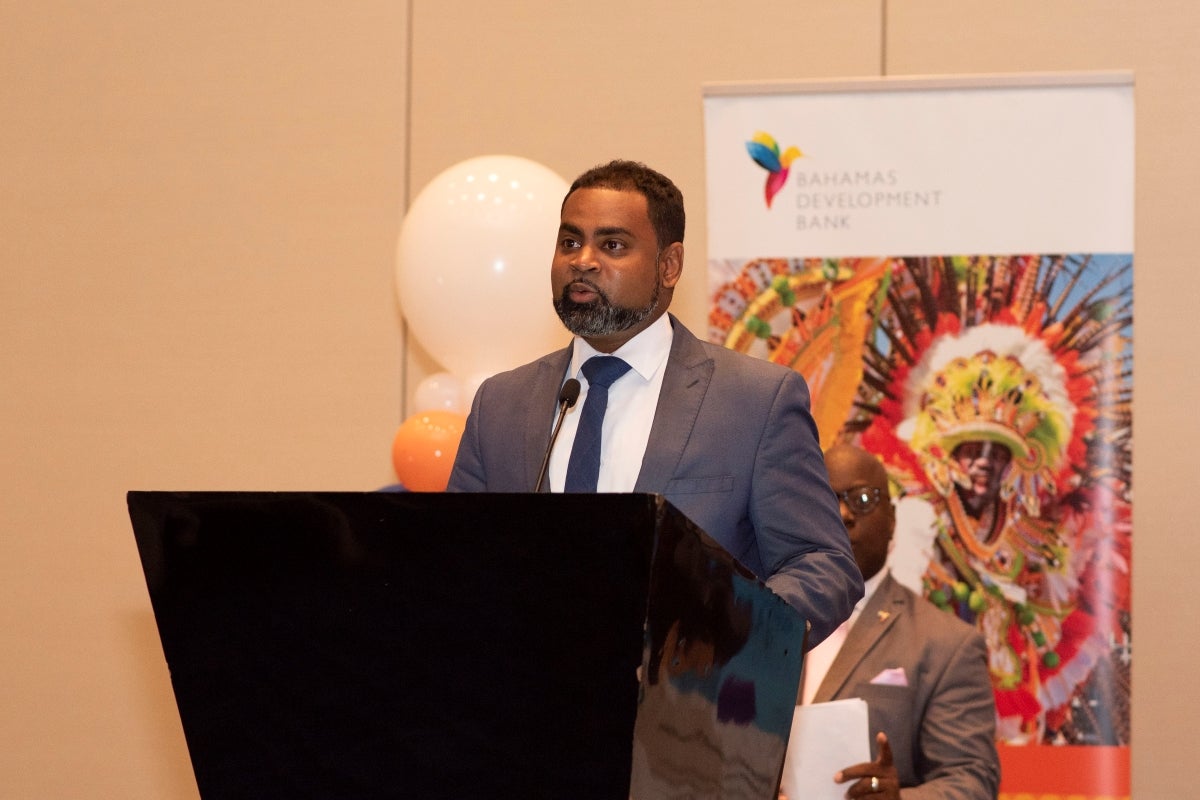
Mr. Gilbert Cassar, Chaiman of The Bahamas Development Bank said the programme’s achievements are testimony of what can be achieved through cooperation, commitment and a shared vision for equitable development:
“As Chairman of The Bahamas Development Bank, I am filled with immense pride as the role we have played in this initiative is instrumental. This programme has reinforced our commitment to fostering inclusive growth and empowering all sectors of our population, particularly those more often overlooked. …The momentum we have built here provides us with the tools, knowledge and partnerships to continue on”.
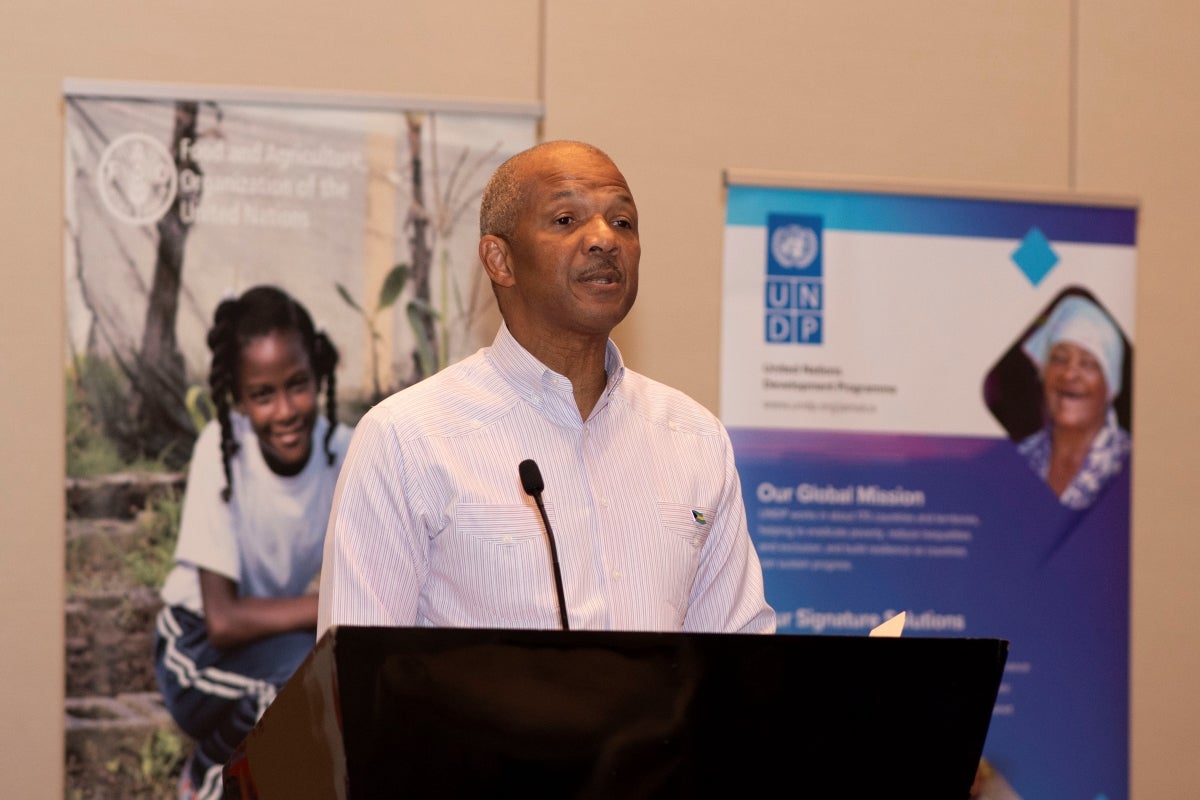
The Honourable Myles LaRoda, Minister of Social Services told the audience that the Project had been a beacon of hope over the past two years for some of the most vulnerable populations in The Bahamas.
“Through targetted gender lens training and capacity building workshops for government stakeholders, we have enhanced our understanding of gender-responsive financing, strengthened institutional frameworks and laid the foundation for sustainable growth and inclusivity”, Minister LaRoda stressed.
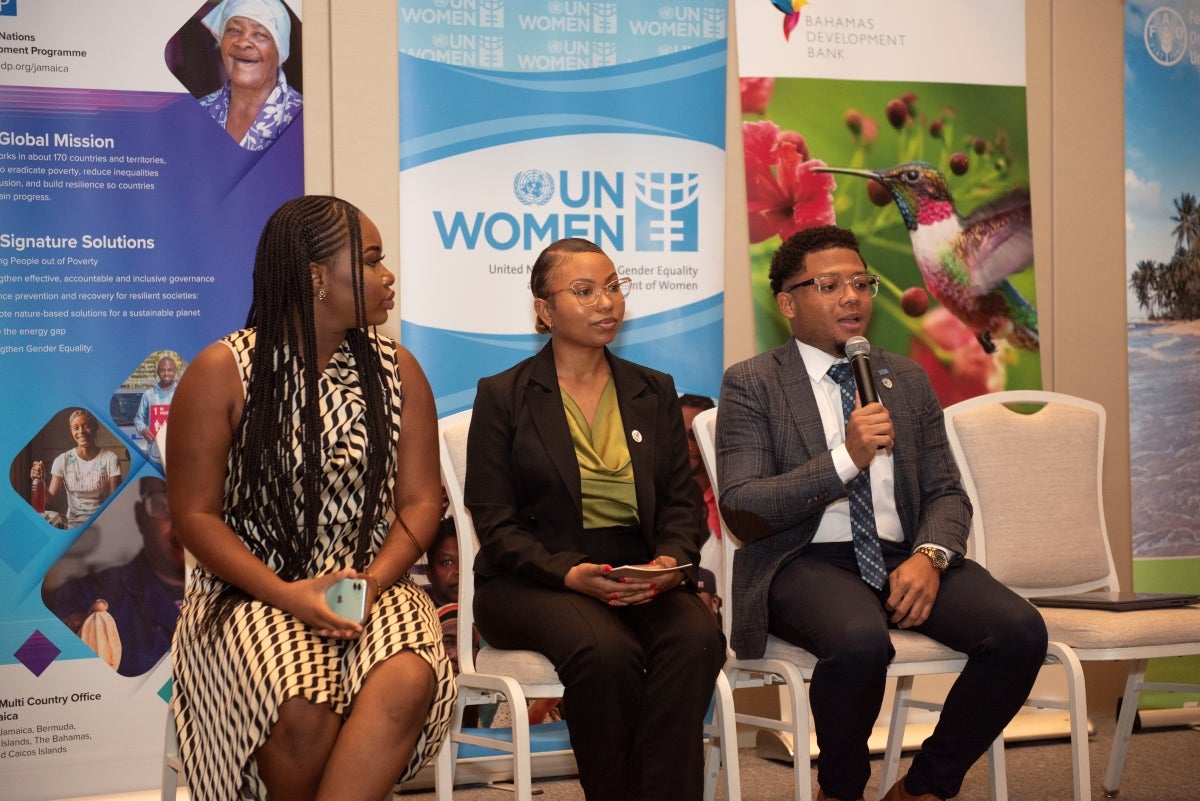
Paula Istúriz Cavero, Social and Human Sciences Specialist and Gender Focal Point, UNESCO said: “UNESCO valued the opportunity to partner with diverse stakeholders ranging from the Division of Youth and the Small Business Development Centre to strengthen capacities for gender equality, foster youth-led knowledge production, develop an artist registry, and provide opportunities for women, youth and persons with disabilities to scale their businesses in the creative and cultural industries - overall contributing to a more a inclusive society”.
Ms. Precious Fortune Thompson, National Consultant/Project Manager UN FAO said: “Today we celebrated the achievement of the collaborative efforts of our UN Agencies along with our partner the BDB. By pooling resources and expertise, we have amplified impact, driving an initiative that empowered many women across The Bahamas. FAO remains committed in advancing initiatives that support gender equality and women's economic empowerment. We aim to break down barriers and create pathways for women to prosper and contribute in their communities.
On behalf of the UNDP Jamaro Marville said: “We are not just closing a programme today; we are also opening doors for sustainability and lasting change with real impact for youth, women and girls and people living with disabilities”.
The Joint SDG Fund Programme, initiated in 2022, was a collaborative effort with the Bahamas Development Bank, the Ministry of Social Services and Urban Development, and four UN agencies: UN Women (lead implementing agency), UNESCO, FAO, and UNDP.
By providing critical financial support, capacity building, and gender-responsive training, this programme has empowered Bahamian MSMEs to thrive and contribute to the nation’s economic growth.
